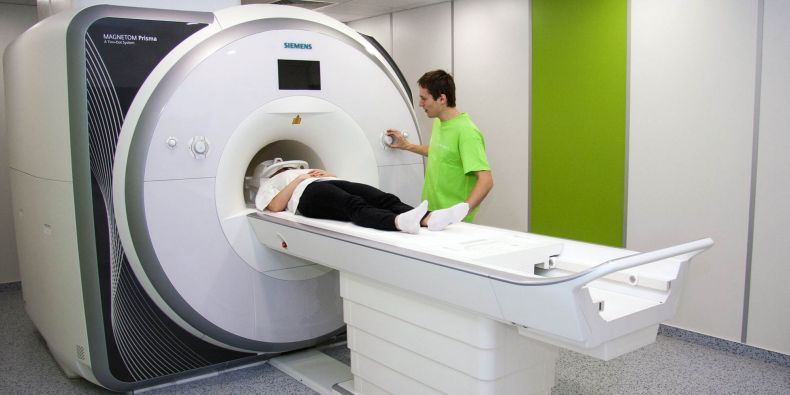Experts in the Behavioural and Social Neuroscience group at Ceitec Masaryk University are trying to determine how lack of sleep influences the human brain and immune system.
With the aid of magnetic resonance imaging (MRI) and new diffusion sequences, which are also being used in the US Human Connectome Project, they are studying “axonal transport” – the communication between brain cells and their axons (fibres) in the white matter of the brain during sleep deprivation. The research is being conducted in cooperation with the Multi-modal and Functional Neuroimaging lab at Ceitec MU and Professor Tomáš Paus at the Child Mind Institute in New York, USA.
“Impairment of axonal transport can lead to the development of mental illnesses such as schizophrenia. In men, the symptoms usually emerge in their early adulthood, between 20 and 25 years of age,” says research leader and neuroscientist Klára Marečková about the motivation behind the study.
Accordingly, the scientists focused their attention on men in this age group. Marečková describes the research methods used: “They were subjected to sleep deprivation and every other day we used MRI to see how their brains react to this stress. Moreover, we used blood tests to monitor immunity indicators and EEG to observe brainwaves and attentiveness.”
She also adds that their research is a follow-up to another study in Boston, USA, where researchers observed the influence of sleep deprivation on people, but only monitored the immunity indicators in their blood. MRI allowed the researchers in Brno to observe the amount of white matter and how and where information flows in the brains of the study subjects, while EEG helped them monitor the subjects’ attentiveness.
The Ceitec study was divided into two stages: the first one was completed in mid January and the second one at the beginning of February. Each of them studied a group of twelve men between 20 and 25 years of age, who were divided into two groups and spent ten days and eleven nights under the researchers’ supervision. While one group (the control group) slept eight hours every day, the participants in the other group only got four hours of sleep a day. All of them went to sleep at 11 p.m., but those with a restricted sleep regimen were up again at 3 a.m.
“All of the participants stayed at the Hotel Campea right next to the campus and were under supervision basically all the time. Unless they were sleeping or undergoing examination at Ceitec MU, they had to stay in the common room, where they could use the internet and work, study or engage in other leisure activities,” says Marečková, adding that this was a deliberate effort on the part of the researchers to standardise the conditions and experiences of the study subjects as much as possible.
The next step for the experts is to analyse the data. Marečková also outlines possible future research directions: “I would like to expand the study to include adolescents and women. Moreover, it would certainly be interesting to observe other influences on the brain’s white matter as well, such as testosterone or stress.” However, she adds that these kind of projects are very demanding, with regard to both time and money.
The whole study had the financial support of the Child Mind Institute and the Open Access programme, which allows external researchers to use Ceitec MU laboratories.
Klára Marečková has returned to the Czech Republic after a period of studying abroad. She studied cognitive science and neuroimaging in Nottingham, UK, before going on to do her PhD studies in Toronto, Canada. She came back to Brno as a postdoctoral researcher. “Studying abroad has been a huge experience. And you can use the contacts that you have made in your future research work, as many grants are based on international cooperation,” she says.
